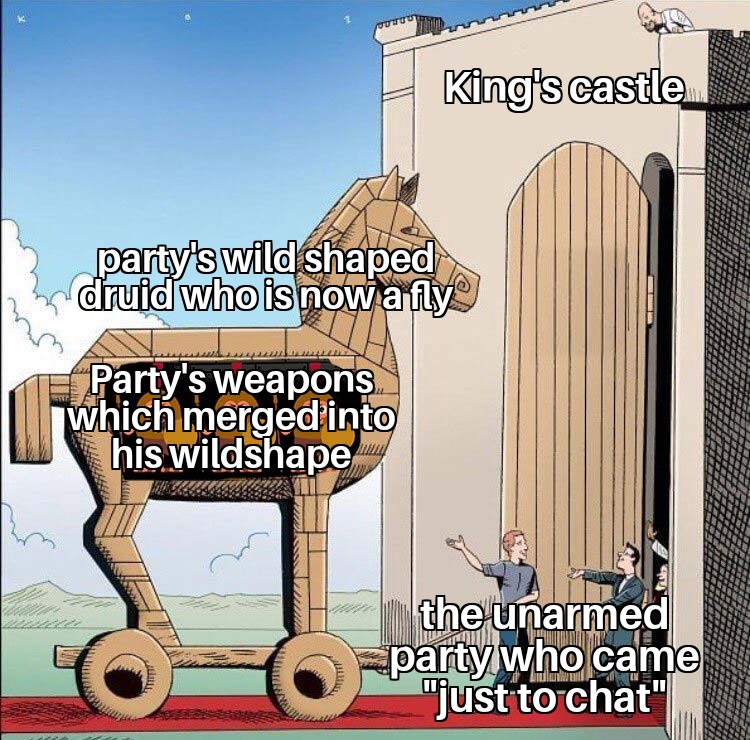this post was submitted on 15 Dec 2023
324 points (98.2% liked)
RPGMemes
10597 readers
94 users here now
Humor, jokes, memes about TTRPGs
founded 2 years ago
MODERATORS
you are viewing a single comment's thread
view the rest of the comments
view the rest of the comments

I would instead lean more into the FATE direction. They are more open for interpretation and thus allow the DM more control.
Spells there don't necessarily specify transforming your weapons. The DM would maybe allow it but doesn't have to. Some of those games don't even have a spell list, so no definitive way to know, your spell idea works or even exists (unless you did it before).
This is the first time I have heard of FATE and that is interesting! From what I'm reading, it's highly free-form, with stuff normally associated with characters or the setting being referred to as aspects (like some kind of adjective or attributes of a programming class), which can be called upon to give bonuses provided you have enough fate points). The free-form part comes from the aspects being basically anything related to the characters/setting at hand. I guess it does put a lot of onus on both the DM and the player to collaboratively figure out how to find creative solutions to problems, but in a way that isn't mechanically restricted.
From what I've seen from the suggestions so far, rules-lite/abstract helps to mitigate some of the rube-goldbergy-mad-contraption-tzeentchian-ness that seems to be inherent in rpgs (and probably human nature lol), but not by "restricting" players in a strictly defined box of rules. Rather, rules-lite systems allow for the rube-goldbergy-mad-contraption-tzeentchian-ness to feel less like breaking the system and more like building the system (within reason and the DM's judgment), which is huge. So either that or a heavy narrative focus seems to work well in theory.